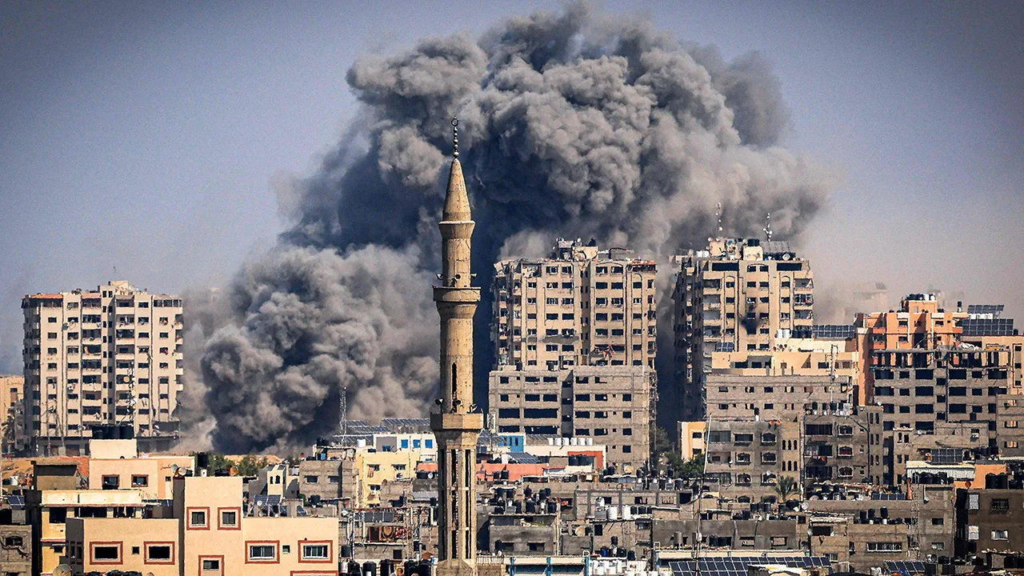Unyielding Crisis in Palestine: The Human Toll of Occupation and Israel’s New Wave of Militarization
The longstanding Israeli-Palestinian conflict reached new depths of tension following the October 7, 2023, attacks by Hamas. The Israeli response in Gaza and the broader shift in Israeli policies has brought to light deep-seated issues regarding occupation, systemic violence, and the intensifying militarization of Israeli society. The traumatic impact of these recent events has reshaped perspectives within Israel and has further compounded the hardships faced by Palestinians, who continue to live under harsh conditions marked by occupation, resource scarcity, and restricted freedom.
The Impact of October 7 on Israeli Society
October 7, 2023, was a day of intense violence that has since been enshrined in Israeli consciousness as a modern-day tragedy. The ensuing wave of fear, trauma, and anger has had lasting effects on the collective psyche of Israelis, with significant political and social ramifications. Within Israel, the narrative has increasingly shifted towards an uncompromising stance, as public sentiment largely coalesces around support for extensive military action. This traumatic rupture in Israeli society has facilitated a wave of authoritarian measures under the current government, further entrenching a political climate where dissent is often met with hostility. The Netanyahu administration has leveraged the tragedy to implement a range of policies that prioritize militarization and expand control, particularly over Palestinian communities.
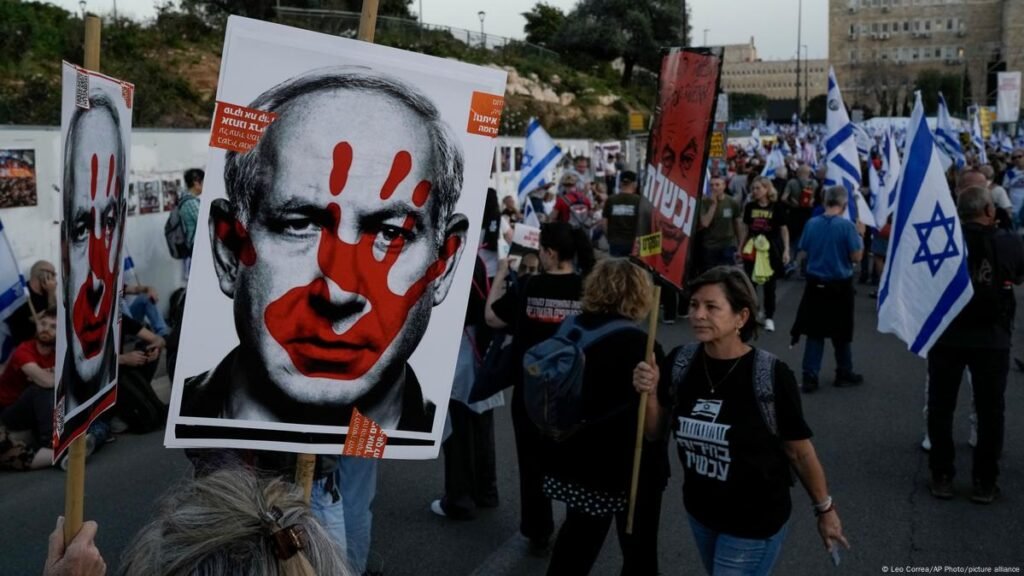
Laws restricting expression and intensifying surveillance have targeted both Palestinian citizens and antiwar activists. Under Minister Itamar Ben-Gvir’s oversight, new civilian “emergency response units” armed with assault rifles have been formed to respond to perceived threats. The widespread arming of civilians and the bolstering of far-right paramilitary forces underscore Israel’s drift towards a hyper-militarized state.
Life Under Occupation: The Palestinian Struggle for Survival and Dignity
For Palestinians, the decades-long occupation has only intensified, with each new policy reinforcing the structural imbalances that govern their lives. In the West Bank and Gaza, Palestinians experience a daily reality marked by physical and bureaucratic barriers.
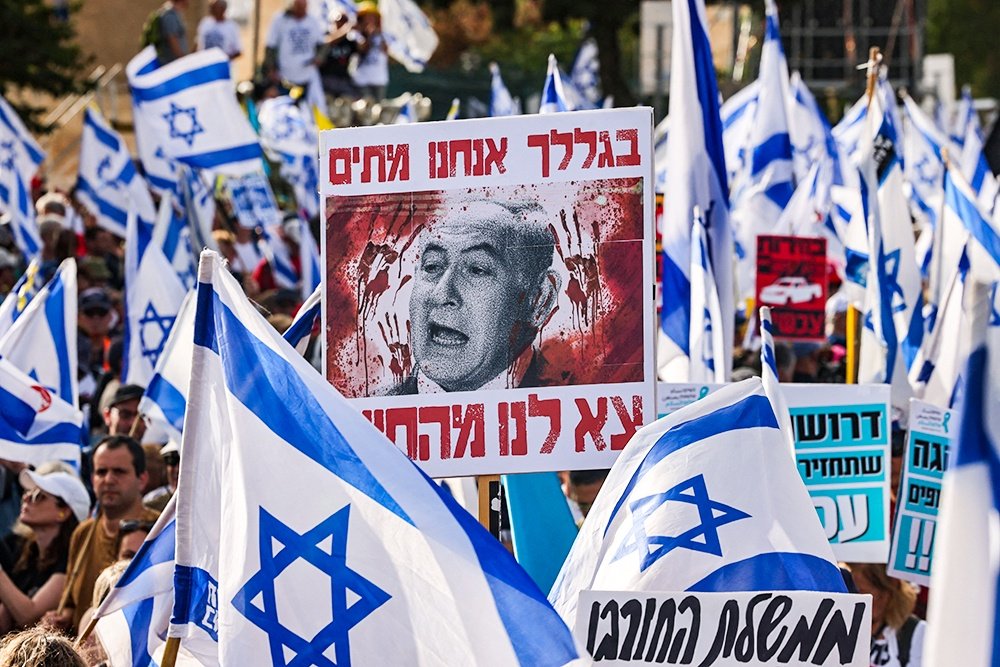
Military checkpoints, curfews, and restrictions on movement contribute to a pervasive sense of control and dispossession. Israeli military raids, often accompanied by arrests, targeted curfews, and demolitions, disrupt even the most basic routines of Palestinian communities. For many Palestinians, life under occupation is defined by an ever-present uncertainty, with each day bringing the threat of further displacement or violence.
In rural areas, Palestinian shepherds and farmers face escalating violence from settlers, often under the protection or tacit approval of the military. These acts of aggression, from crop destruction to physical assault, are designed to expel Palestinians from their lands. For those living in towns and villages near settlements, life is a constant struggle to hold on to homes and land amid continuous settler expansion. Recent reports document the increasing establishment of new settler outposts and roads, which further encroach upon Palestinian territories.
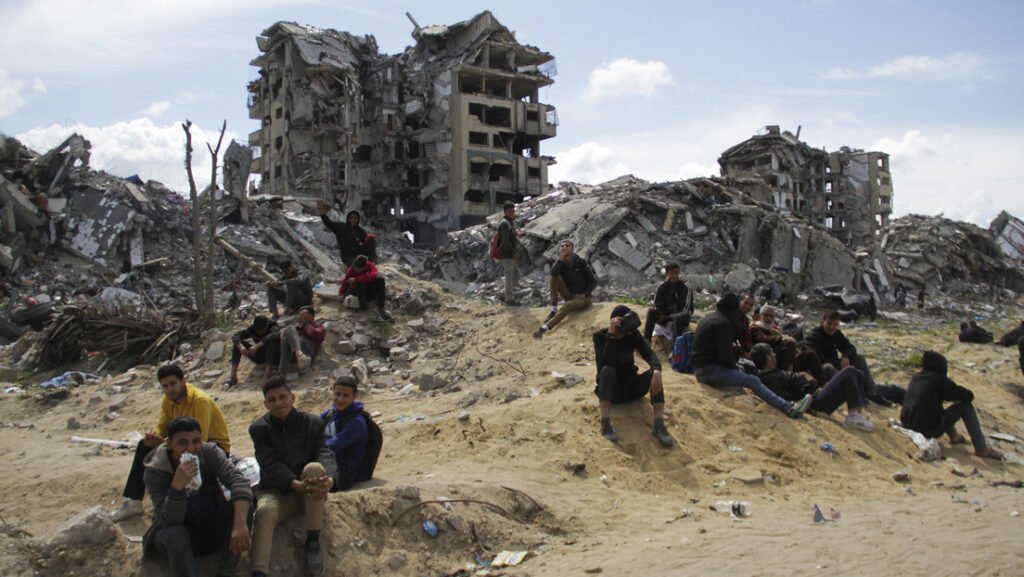
The Gaza Strip: A Symbol of Siege and Isolation
The humanitarian situation in Gaza has worsened markedly, especially as a result of Israel’s sustained military response following October 7. Gaza’s infrastructure, already compromised by years of blockade and intermittent conflicts, has reached critical levels of degradation. Access to electricity and water remains severely limited, with frequent power cuts dictating daily life. This deprivation affects everything, from basic needs to access to healthcare, which is further complicated by stringent restrictions on movement. Israeli airstrikes and ground incursions continue to target what Israel claims are military assets but often inflict extensive collateral damage on civilian areas. The majority of Gaza’s population lives under the constant threat of airstrikes, and with limited escape routes, civilians are effectively trapped.
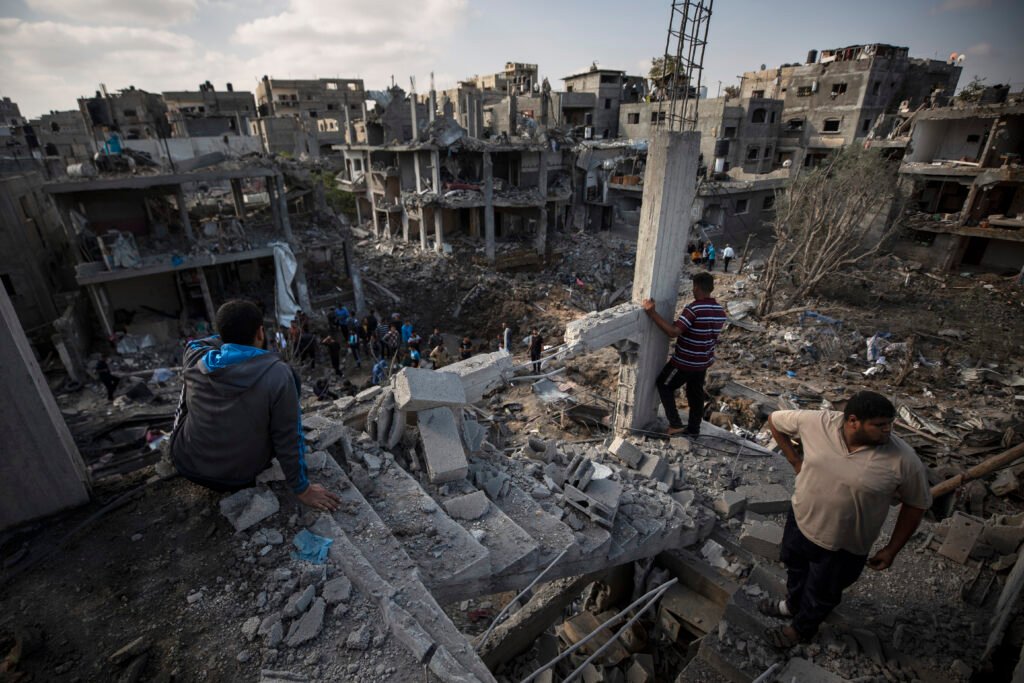
While Israel’s stated objective is to eliminate threats posed by Hamas, the impact on Gaza’s two million residents has led to what international human rights organizations are describing as a humanitarian catastrophe.
The Erosion of Israeli Democracy and Civil Liberties
The current Israeli government has used the heightened security concerns post-October 7 as a pretext to advance far-reaching changes to civil liberties within Israel. The government’s controversial judicial overhaul aims to weaken the judiciary’s ability to check executive power, a move critics argue paves the way for further annexation efforts in the West Bank. Mass protests opposing these changes have been met with police crackdowns and legal restrictions on freedom of expression, particularly for Palestinians within Israel and antiwar Jewish activists.
Since Ben-Gvir’s appointment as Minister of National Security, police powers have been expanded to enable increased surveillance and control over Palestinian communities. Dissenting voices, particularly those sympathetic to Palestinian suffering, are frequently labeled as security threats, effectively criminalizing opposition. Journalists reporting on the impact of the Gaza campaign or on settler violence face harassment and intimidation, further shrinking the space for public discourse.
Global Repercussions and Calls for Intervention
As the situation worsens, the international community faces mounting pressure to take a more active role in addressing the Israeli-Palestinian conflict. Human rights organizations and activists have called for targeted interventions, such as a weapons embargo on Israel, to curtail the use of military force against civilian populations in Gaza and the West Bank. Calls for stronger sanctions and accountability measures reflect a growing consensus that without external pressure, the cycle of violence is unlikely to end.
In response, Israel’s government has positioned itself as a bulwark against extremism, framing its actions as a defense against terrorism and an extension of Western democratic values. This narrative, however, stands in contrast to the human rights abuses documented by numerous international observers. The disconnect between Israel’s portrayal of its policies and the realities on the ground has fueled protests worldwide, with many urging Western governments to reassess their support for Israel’s current trajectory.
Towards Sustainable Peace and Justice
The events of the past year have underscored the urgent need for a renewed approach to peace in the Middle East. For many Palestinians, the fundamental issue remains the occupation and the lack of sovereignty. The recent internal militarization within Israel, coupled with its policies in the occupied territories, poses a significant barrier to peace. Solutions proposed by Palestinian advocates include international mediation to ensure security, equity, and fair access to resources for all, as well as a reevaluation of settlement policies to prevent further encroachment on Palestinian land.
A sustainable resolution will require meaningful dialogue and the dismantling of the structures that perpetuate inequality. For Palestinians, freedom and self-determination remain essential to any future peace process. For Israel, reassessing its stance on occupation and human rights could foster stability and re-establish its commitment to democratic principles. Only through balanced and equitable policies can the region hope to move beyond its current cycle of violence and towards lasting peace.
